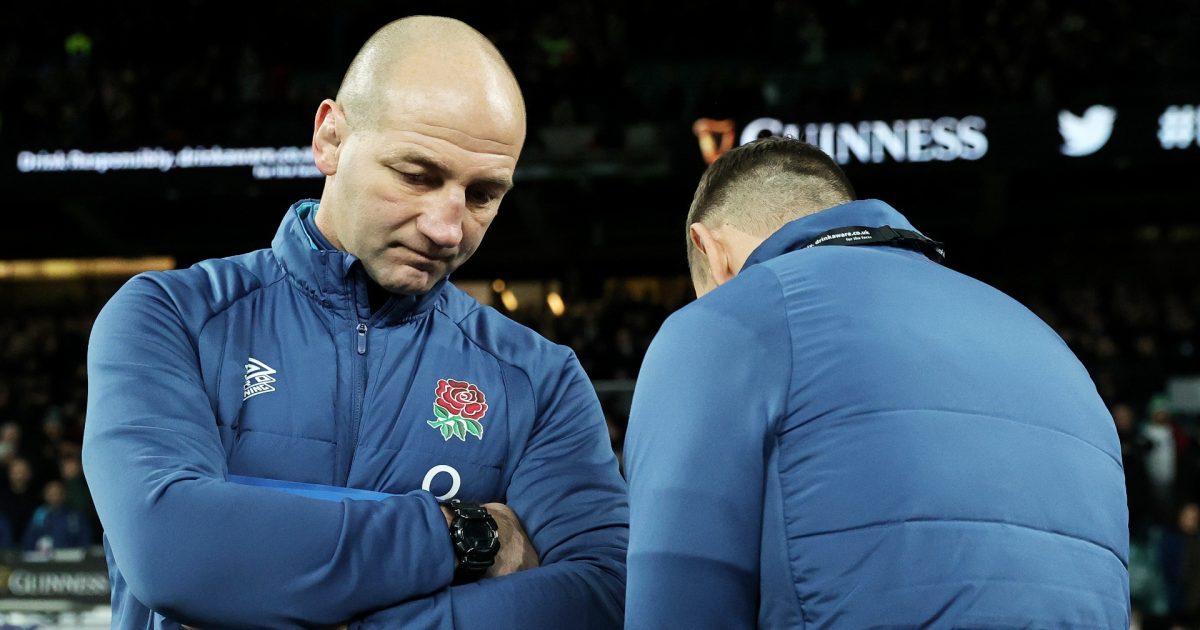'We've got a lot of work to do': No quick fix for England after Scotland defeat

Steve Borthwick insists there are no quick fixes as he attempts to revitalise an underperforming England team burdened by the failings evident during the Eddie Jones era.
A 29-23 Guinness Six Nations defeat by Scotland provided some promising moments but ultimately a seven-try thriller at Twickenham was a disappointing start to Borthwick’s reign.
England’s new head coach took charge in December after Jones was sacked in response to a grim 2022, inheriting a side struggling with a number of significant defects.
While Ireland and Scotland have made strong early impressions on the Six Nations, Borthwick knows a salvage job which to date numbers only 11 days in camp will not happen overnight.
“We know we’ve got a lot of work to do. I’ve been frank from day one in saying there’s a lot of work to do,” said Borthwick, whose next assignment is a round two clash with Italy at Twickenham on Sunday.
“When I looked at the team in the autumn, when I measured the team and got all the data for the team, we weren’t good at anything. It was as frank as that.
“So we are trying to build some strengths in this team and some bits we are pleased about and some bits we are disappointed about. My job is to make sure we get some improvements for Italy.
“There are multiple areas we have tried to change. You saw some improvement in the scrum against Scotland which I was pleased about because it has been ranked as the worst scrum in tier one rugby.
“We saw some improvements in the attack and speed of ball and we tried to improve the breakdown where England were ranked the ninth quickest, so one of the slowest in tier one.
“I’d seen a habit within the team of conceding points early and not being able to respond to it. We conceded points against Scotland and the biggest thing I was looking at was the response. I thought the response was magnificent.
“We saw improvement against Scotland in a lot of areas. Some areas didn’t go so well and we need to make sure we get those addressed. Some take longer than others.
“We are trying to rebuild the set-piece here. That takes time. You saw some improvement in our attack.
“In terms of the way we hit in defence, there were improvements there but there were a couple of tries which Scotland took brilliantly, which is immense credit to them.
“I feel disappointed with the result. I asked the players to do some things differently. I have asked the players to play a new way.
“I have got to get the players to believe in themselves and get the players to bring their strengths to the pitch.
“I want them to play to the best of themselves, which we haven’t seen them do for a while. I think you saw an improvement in that regard against Scotland.”
Veteran hooker Jamie George admits that “something wasn’t quite working” last autumn when defeats by Argentina and South Africa, plus a draw with New Zealand, sealed Jones’ fate.
Losing to Scotland, albeit narrowly in a Calcutta Cup classic, is a setback but George insists the players are determined to bring about England’s recovery.
“We’re all very, very ambitious people. We want to take England rugby back to the top and we’re aware that it hasn’t been good enough, especially in the autumn,” the Saracens front row said.
“Eddie took the brunt of it in terms of losing his job, but at the same time we were the people on the field. So we have to take accountability for it too.”
































